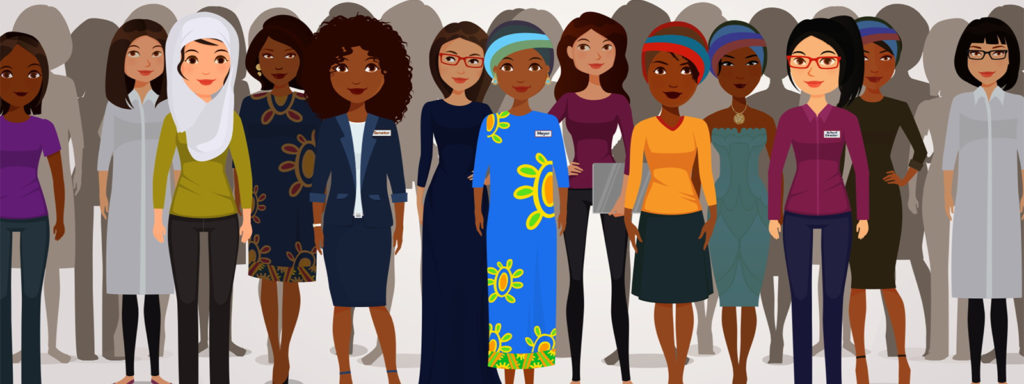By Laudy Issa
A new, colossal mural of a woman towers over those passing by on a busy street in Hamra, Beirut. The mural speaks loudly, both figuratively and literally. The woman in it carries a megaphone, standing firm on a chessboard that is littered with obstacles –a metaphor for women entering male-dominated fields.
The mural was unveiled by the Lebanese Association for Democratic Elections (LADE) as part of a non-traditional campaign with Hivos’ Women Empowered For Leadership (WE4L) program looking to inspire more women in Lebanon to take up leadership positions. The mural was drawn and carried out as a collaborative effort between young painter Lea Bou Habib and long-time street artist Elie Zaarour, facilitated by the Art for Change foundation that creates spaces for art that inspires, reflects on social concerns, and helps shape society.
Artists Lea Bou Habib and Elie Zaarour and their new mural (Photo by Laudy Issa)

“The message we’re trying to send is addressed to everyone, and specifically for women: your natural place is in leadership. In leading protests, political parties, and the country,” said Yara Nassar, Executive Director of LADE, in her opening speech. “We can’t get out of the economic, social, and political crises that are suffocating us if half the Lebanese society is not playing their role in leadership.”
Aside from witnessing the unveiling of the mural, those attending the event had the opportunity to write their opinions on it and a message to women on the #YouAreANaturalLeader banner present at the event.
The Obstacles Female Leaders Maneuver Through In Lebanon
The mural was painted to tackle the gender stereotypes forcing women into specific roles that would have them believing their place is in the kitchen, submitting to their husbands, or taking care of their children on their own/
Not only was the mural countering these stereotypes by having the woman stand firmly where she, statistically, would not: on a chessboard.
“The game of chess and the pawns that fall represent the barriers that women face, and we drew the woman on the chessboard because chess is a male-dominated game,” said Lea Bou Habib, one of the two artists behind the mural. “We have her there with a megaphone to extend her voice to the public, saying that she can be in power.”
Recent ratings from the World Chess Federation identify 1680 grandmasters, the highest title that can be earned by a chess player. Out of these 1680 grandmasters, only 37 are female.
In addition to opposing these restrictive categories, the mural was also addressed to political parties. A national representative survey on the public perceptions of women in Lebanese politics, which was published by Hivos earlier this year, indicated that respondents consider the main challenge to female participation in politics pertains to be the hesitation of political parties in nominating women on their electoral lists.
“We’re saying that it’s time for political parties to nominate women for leadership positions within their own parties and to be a part of the decision-making process, whether through Parliament or the government,” said Aly Sleem, Research Coordinator at LADE.
The obstacles pertaining to female leaders extend beyond the realm of politics. The Global Gender Gap Report published in 2018 by the World Economic Forum highlighted that women only make up 25 percent of the labour force in Lebanon, while men make up the remaining 75 percent. Lebanon ranks 136th in terms of economic participation out of 149 countries. On the other end of the spectrum, equal opportunities for women in workplaces across the world can contribute over 12 trillion dollars to the global economy.
An earlier study by the Arab Foundation for Freedoms of Equality (AFE), another WE4L Lebanon partner, identified the lack of legal text to ensure the safety of women from any form of sexual harassment in Lebanese workplaces to be a barrier that impedes their participation on all political and economic levels.


